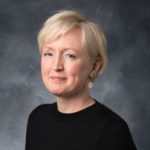
Lori Branch is associate professor of Restoration and Eighteenth-Century English Literature at the University of Iowa. Her first book, Rituals of Spontaneity: Sentiment and Secularism from Free Prayer to Wordsworth, was named 2007 Book of the Year by the Conference on Christianity and Literature. She has published widely on literature, religion, and the postsecular, from the fourth-century Sayings of the Desert Fathers to seventeenth-century Dissent, contemporary Gothic novels, and Eastern Orthodoxy. Prior to the pandemic, she lectured in Los Angeles, Boston, Beijing, and Shanghai about postsecular studies, Wordsworth, and the Bible, and with her collaborator Mark Knight she co-taught two NEH Summer Seminars for faculty on religion, secularism, and the novel. She edits the monograph series “Literature, Religion, and Postsecular Studies” for Ohio State University Press and is currently at work on a book project titled Postsecular Reason.

Brigham Young University
Edward S. Cutler is associate professor of literature at Brigham Young University, where he specializes in nineteenth-century literature and critical theory. He is the author of Recovering the New: Transatlantic Roots of Modernism and has published several articles on the American poet Walt Whitman. He has held number of administrative assignments at BYU and has just begun an appointment as editor of Literature & Belief.
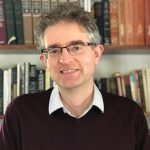
Rutgers University
Colin Jager is Professor of English and Director of the Center for Cultural Analysis at Rutgers University in the USA. A scholar of British Romanticism, religion, and secularism, Jager is the author of two academic monographs, both published by the University of Pennsylvania Press: The Book of God: Secularization and Design in the Romantic Era (2007) and Unquiet Things: Secularism in the Romantic Age (2015) and of articles on romanticism, religion, cognitive science and other topics, published in MLQ, ELH, Public Culture, Qui Parle, and elsewhere. He is co-editor of Working with a Secular Age: Interdisciplinary Perspectives on Charles Taylor’s Master Narrative (DeGruyter, 2016) and editor of two special journal issues on secularism: in Romantic Circles Praxis (2008) and Christianity & Literature (2018). At Rutgers, he regularly teaches courses on poetry and poetics, secularism, religion, literary theory, and romantic literature. He is a Life Member of Clare Hall (Cambridge University) and a 2008 ACLS Fellow. In fall 2018 he was Leverhulme Visiting Professor at Lancaster University in England. He is at work on two book projects: the first on Romanticism and political possibility; the second on aesthetics and religion, with the working title On Not Being Reconciled: Literature, Religion, and Selfhood.

Lancaster University
Mark Knight is Professor of Literature, Religion, and Victorian Studies at Lancaster University. His most recent monograph is Good Words: Evangelicalism and the Victorian Novel (Ohio State University Press, 2019). Mark is General Editor of the journal Literature and Theology, and coedits a book series with Emma Mason, New Directions in Religion and Literature (Bloomsbury).
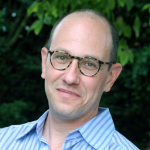
Washington & Lee University
Jeffrey L Kosky is professor of Religion at Washington & Lee University in Lexington, VA. He is the author of books and essays on modern secularity, art and religion, as well as contemporary philosophy, with special interests in phenomenology. His book, Arts of Wonder: Enchanting Secularity (University of Chicago Press), was named to the New Museum’s list of “Favorite titles from the past year” and received the Award for Excellence in Constructive-Reflective Studies from the American Academy of Religion.
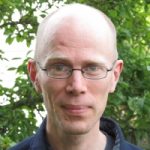
University of Washington
Charles LaPorte is Professor of English at the University of Washington in Seattle. He writes chiefly about the intersection of poetry and religious discourses. His first book, Victorian Poets and the Changing Bible (Virginia, 2011), shows how poets wrestle with the implications of modern Biblical criticism. His next, The Victorian Cult of Shakespeare (Cambridge, 2021), explores the religious tenor of nineteenth-century Shakespeare reading. He has recently co-edited special issues on the topic of religion for Nineteenth-Century Literature and Victorian Review, and with Mark Knight he is presently co-editing a special issue on religion for Modern Language Quarterly entitled “Talking About Religion in Eighteenth- and Nineteenth-Century Literary Studies.”
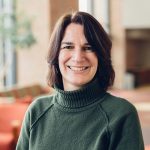
Calvin University
Debra Rienstra is professor of English at Calvin University in Grand Rapids, Michigan, where she serves as the current Spoelhof Chair and teaches early modern British literature and creative writing. Her early modern scholarship focuses on religious poetry, with an emphasis on religious poetics and the sonnet tradition. She is also the author of several nonfiction books for wider audiences on motherhood, spirituality, and worship. Her forthcoming book, combining ecotheology and nature writing, is Refugia Faith: Seeking Hidden Shelters, Ordinary Wonders, and the Healing of the Earth (Fortress, 2022). She is the host of the Refugia Podcast and writes biweekly on spirituality, religion, pop culture, ecotheology, and other topics for The Reformed Journal.
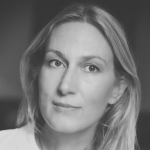
Pontifical Gregorian University
Yvonne Dohna Schlobitten is a professor of Philosophy and Theory of the Sacred and the Spirituality of Art at the Pontifical Gregorian University in Rome. She specializes in “Spiritual Seeing” and in Romano Guardini’s Weltanschauung in the context of the religious epistemology of art. Together with other scholars she is building a field in which “The Story and Theory of the Seeing of Christ” is investigated as the origin of the process of comprehension (Erkenntnis). She is a member of the editorial committee of the magazine ‘Donne, Chiesa, Mondo’ of L’Osservatore Romano and developing the topic ‘Women read Pope Francis’, a founding member of the Round Table on the Feminine Dimension in Rome and part of the research group ‘Donna –uomo’ at the Faculty of Philosophy at the Pontifical Gregorian University. During the last five years she has been an educator at the Centro della Meditazione Cristina with the responsibility of teaching the “Spiritual Seeing from T. of Aquinas to U.v. Balthasar”.
Her books include “Lo specchio della Fede: La rappresentazione del Divino nell’arte di Raffaello e Michelangelo” (The Mirror of Faith: the image of the Divine in Michelangelo and Raphael” (Accademia Raffaello 2013); “La Lotta di Giaccobe: Paradigma della Creazione Artistica. Un’esperienza comunitaria di formazione integrale, su Chiesa, estetica e arte contemporanea, ispirata a Romano Guardini” (Cittadella, 2020); “Pope Art. La teoria del sacro nell’arte contemporanea dei pontefici. I Beni Culturali nell’orizzonte della formazione teologica estetica” (2021, GB Press); “L’Amore Divino e Profano. Uno sguardo diverso su Raffaello. Himmlische und irdische Liebe. Ein anderer Blick auf Raffael” (Schnell & Steiner 2021), “Alex Stock: La dogmatica poetica. La dottrina di Dio (2021, GB Press) and “Guardini und Michelangelo. L’origine del pensare teologico” (GB Press 2021).
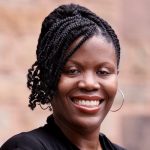
College of Wooster
- Leslie E. Wingard earned her BA in English from Spelman College and her PhD in English from UCLA. She is Associate Professor and Chair of English at the College of Wooster in Wooster, Ohio. Her articles have been published by Religion and Literature, Religion and the Arts, South: A Scholarly Journal, Christianity & Literature, and American Quarterly. Her book under contract at the University of Georgia Press is entitled The Acts and Arts of Faith: Representation and Black Christianity. Her primary research areas include African American literature, religion and literature, Black visual culture, ethnic studies, and women’s and gender studies. Wingard began liberal arts college work as a Consortium for Faculty Diversity Predoctoral Fellow in the Religion Department and Program in Africana Studies at Haverford College and as Mellon Postdoctoral Fellow in Visual Culture at Williams College. More recently, Wingard worked while on research sabbatical from the College of Wooster in Princeton University’s Department of African American Studies and at the Princeton Theological Seminary.